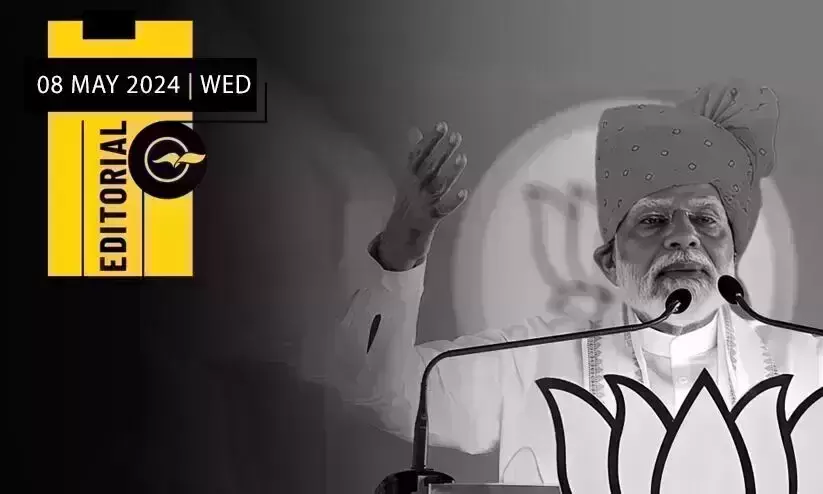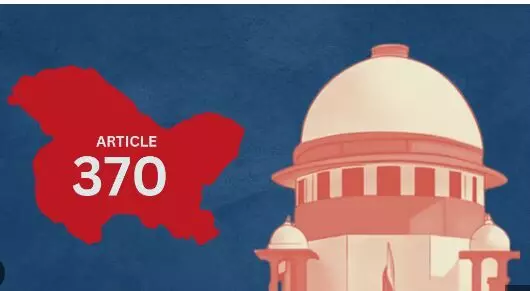
Kashmir has no internal sovereignty after accession to India: SC upholds abrogation of Article 370
text_fieldsIn a landmark judgment today, the Supreme Court upheld the reorganization of Ladakh as a Union Territory but refrained from determining the validity of the reorganization of Jammu and Kashmir into two Union Territories – Jammu and Kashmir, and Ladakh – following the revocation of Article 370 through the Centre's decisions on Aug 5, 2019.
The court's decision came after hearing a batch of petitions challenging the de-operationalising of Article 370, which stripped Jammu & Kashmir of its special status.
Chief Justice Chandrachud in one of the three judgements issued on the subject matter, highlighted that Article 370, which provided special autonomy to Jammu and Kashmir, was temporary. It served as an interim arrangement until the Jammu and Kashmir Constituent Assembly could ratify the Indian Constitution.
The Chief Justice dismissed the notion that Jammu and Kashmir enjoyed a unique relationship with the Indian Constitution, stating that the state did not retain any internal sovereignty after accession to India.
Chief Justice Chandrachud, who led the five-judge bench also comprising Justices Sanjay Kishan Kaul, Sanjiv Khanna, BR Gavai and Surya Kant emphasized that the Union Territory status for Jammu and Kashmir is temporary, aligning with the Centre's submission. The court further directed the restoration of statehood to Jammu and Kashmir at the earliest.
Additionally, it mandated the Election Commission of India to conduct elections to the Legislative Assembly of Jammu and Kashmir by September 30, 2024.
Against the arguments presented by the petitioners, the bench rejected the contention that the Union cannot take irrevocable actions during the President's rule. He reiterated that Jammu and Kashmir's accession to India resulted in the state losing any internal sovereignty.
The court pointed out that Maharaja Hari Singh's proclamation retaining sovereignty was superseded by his successor, Yuvraj Karan Singh, who declared that the Indian Constitution would prevail over all other laws in the state.
The Chief Justice clarified that while there are limitations to the President's actions after the proclamation of the President's rule, they were valid in this case. The bench concluded that there was no prima facie case that the President's orders were mala fide or an extraneous exercise of power.
The President and Parliament are not impeded from taking over as Governor or State Legislature under Article 356.
























